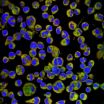(Press-News.org) Women treated for the cancer Hodgkin lymphoma will be able to better understand their risks of future infertility after researchers estimated their risk of premature menopause with different treatments.
The findings, set out in the Journal of the National Cancer Institute, are based on the experience of more than 2,000 young women in England and Wales treated for the cancer over a period of more than 40 years.
Previous research has suggested that women with Hodgkin lymphoma who receive certain types of chemotherapy or radiotherapy are at increased risk of going through the menopause early – but there was insufficient information to provide patients with detailed advice.
But the new study, led by scientists at The Institute of Cancer Research, London, provides precise estimates of risk for women depending on which treatment types and doses they received and at what age - allowing doctors to give them detailed advice about their risks of future infertility.
The research was largely funded by Breakthrough Breast Cancer and involved researchers from across the UK at more than 50 universities and hospitals.
The research team followed-up 2,127 women who had been treated for Hodgkin lymphoma in England and Wales between 1960 and 2004, and who had been aged under 36 at the time. All had received treatment with chest radiotherapy, sometimes alongside other treatments.
Some 605 of the women in the study underwent non-surgical menopause before the age of 40. This was a large enough number for the researchers to estimate accurate risks of menopause at different ages, depending on the mixture and doses of treatments they received and the age they received them.
The researchers produced a risk table which could help improve the advice that clinicians are able to give to women who have undergone treatment for the disease. Several of the treatments caused a sharp increase in premature menopause risk.
For example, a woman who had received six or more cycles of a standard chemotherapy regimen in her late 20s, but without receiving radiotherapy to the pelvic area, had a chance of around 18 per cent of undergoing menopause by the age of 30, or 58 per cent by age 40.
Overall, risk of premature menopause was more than 20-fold raised after ovarian radiotherapy, and also after some specific chemotherapy regimens. Risk of menopause by age 40 was 81 per cent after receiving ovarian radiotherapy at an overall dose of 5 or more Grays, and up to 75 per cent after chemotherapy, depending on the type, although only one per cent after receiving a chemotherapy regimen called ABVD.
Study leader Professor Anthony Swerdlow, Professor of Epidemiology at The Institute of Cancer Research, London, said:
"Hodgkin lymphoma often affects younger women, and although fortunately most survive the disease, treatments including certain types of chemotherapy and pelvic radiotherapy can lead to premature menopause.
"We hope our study will help women to understand better, in consultation with their doctors, their risks of future infertility following treatment for this malignancy. By looking in a much larger group of women than previous studies of this type, we were able to produce age and treatment specific risk estimates that we hope will be of practical use to individual women. I'm extremely grateful to the patients and doctors who made it possible for us to produce this information."
INFORMATION:
Notes to editors
For more information contact the ICR press office on 020 7153 5380 / henry.french@icr.ac.uk. For enquiries out of hours, please call 07708 516357.
The Institute of Cancer Research, London, is one of the world's most influential cancer research institutes.
Scientists and clinicians at The Institute of Cancer Research (ICR) are working every day to make a real impact on cancer patients' lives. Through its unique partnership with The Royal Marsden Hospital and 'bench-to-bedside' approach, the ICR is able to create and deliver results in a way that other institutions cannot. Together the two organisations are rated in the top four cancer centres globally.
The ICR has an outstanding record of achievement dating back more than 100 years. It provided the first convincing evidence that DNA damage is the basic cause of cancer, laying the foundation for the now universally accepted idea that cancer is a genetic disease. Today it leads the world at isolating cancer-related genes and discovering new targeted drugs for personalised cancer treatment.
As a college of the University of London, the ICR provides postgraduate higher education of international distinction. It has charitable status and relies on support from partner organisations, charities and the general public.
The ICR's mission is to make the discoveries that defeat cancer. For more information visit http://www.icr.ac.uk
Breakthrough Breast Cancer is the UK's leading breast cancer charity dedicated to saving lives through improving early diagnosis, developing new treatments and preventing all types of the disease.
The need for Breakthrough Breast Cancer's work has never been greater. Breast cancer is the most common of all cancers in the UK, with 50,000 women diagnosed every year and 1,000 women dying every month.
Breast cancer is not yesterday's problem; it's a disease that affects more women every year. Breakthrough Breast Cancer is working harder than ever before to stop women getting, and dying from, the disease.
The charity funds 25% of the breast cancer research in the UK, campaigns to ensure survival rates are among the best in the world and educates women to recognise the signs and symptoms of the disease.
Over the next six years Breakthrough will take its ground-breaking work to the next level by investing at least £100 million in research that has the power to stop breast cancer for good.
For more information go to breakthrough.org.uk
Scientists map risk of premature menopause after cancer treatment
2014-08-22
ELSE PRESS RELEASES FROM THIS DATE:
More common procedures for painful facial tics carry high costs, reports study in Neurosurgery
2014-08-22
August 22, 2014 – For patients who need surgery for facial pain caused by trigeminal neuralgia, the most cost-effective procedure is the least often used, reports a study in the September issue of Neurosurgery, official journal of the Congress of Neurological Surgeons. The journal is published by Lippincott Williams & Wilkins, a part of Wolters Kluwer Health.
Percutaneous stereotaxic rhizotomy (PSR) provides good pain relief at much lower cost than other types of surgical treatments for trigeminal neuralgia, according to the report by Dr. Siviero Agazzi and colleagues ...
Hormone analysis helps identify horny rhinos
2014-08-22
The first comprehensive study of captive black rhino reproduction in Europe highlights how hormone analysis could improve the success of breeding programmes.
Researchers from Chester Zoo, The University of Manchester and the University of Liverpool carried out a six-year study which encompassed 90% of European population of black rhino.
Dr Katie Edwards led the research as part of her PhD at the University of Liverpool. She says: "Although some black rhinoceros breed well in captivity, not all do therefore reducing the vital genetic reserve that these populations represent. ...
Poll finds many in US lack knowledge about Ebola and its transmission
2014-08-22
Boston, MA – Although the Centers for Disease and Prevention (CDC) reports no known cases of Ebola transmission in the United States, a Harvard School of Public Health (HSPH)/SSRS poll released today (August 21, 2014) shows that four in ten (39%) adults in the U.S. are concerned that there will be a large outbreak in the U.S., and a quarter (26%) are concerned that they or someone in their immediate family may get sick with Ebola over the next year.
The nationally representative poll of 1,025 adults was conducted August 13-17, 2014 by researchers at HSPH and SSRS, an ...
In our digital world, are young people losing the ability to read emotions?
2014-08-22
Children's social skills may be declining as they have less time for face-to-face interaction due to their increased use of digital media, according to a UCLA psychology study.
UCLA scientists found that sixth-graders who went five days without even glancing at a smartphone, television or other digital screen did substantially better at reading human emotions than sixth-graders from the same school who continued to spend hours each day looking at their electronic devices.
"Many people are looking at the benefits of digital media in education, and not many are looking ...
Green tea polyphenols protect spinal cord neurons against oxidative stress
2014-08-22
Green tea polyphenols are strong antioxidants and can reduce free radical damage. Can they protect spinal cord neurons against oxidative stress? Jianbo Zhao and co-workers from the First Affiliated Hospital of Liaoning Medical University, China discovered that green tea polyphenol effectively alleviated oxidative stress and inhibit neuronal apoptosis, indicating green tea polyphenols play a protective role in spinal cord neurons under oxidative stress. The relevant study has been published in the Neural Regeneration Research (Vol. 9, No. 14, 2014).
INFORMATION:
Article: ...
Recombinant adenovirus-mediated DHCR24 inhibits neural apoptosis
2014-08-22
3β-Hydroxysteroid-Δ24 reductase (DHCR24) is a multifunctional enzyme that localizes to the endoplasmic reticulum and has neuroprotective and cholesterol-synthesizing activities. DHCR24 overexpression confers neuroprotection against apoptosis caused by amyloid β deposition. Dr. Xiuli Lu and colleagues from Liaoning University in China constructed two recombinant adenoviruses (Ad-rSYN1-DHCR24-myc and Ad-hSYN1-DHCR24-myc) that drive DHCR24 expression specifically in neuronal cells. They also found that adenovirus transfection inhibits apoptosis through scavenging ...
Smokers consume same amount of cigarettes regardless of nicotine levels
2014-08-22
Cigarettes with very low levels of nicotine may reduce addiction without increasing exposure to toxic chemicals, according to a new study from the University of Waterloo.
The study published in the journal Cancer Epidemiology monitored the smoking behaviours of 72 adults as they switched to three types of cigarettes with markedly reduced nicotine levels.
Unlike when smokers switch between conventional cigarette brands—all of which have very similar levels of nicotine content—the study found no change in participants' puffing behaviour, number of cigarettes consumed ...
Spectacular supernova's mysteries revealed
2014-08-22
New research by a team of UK and European-based astronomers is helping to solve the mystery of what caused a spectacular supernova in a galaxy 11 million light years away, seen earlier this year.
The supernova, a giant explosion of a star and the closest one to the Earth in decades, was discovered earlier this year by chance at the University of London Observatory. These phenomena are extremely important to study because they provide key information about our universe, including how it is expanding and how galaxies evolve.
The new research into its cause, published ...
Citizen scientists saving lives around deadly 'Throat of Fire' volcano
2014-08-22
Citizen scientists are saving the lives of people living in the shadow of deadly volcanoes according to new research from the University of East Anglia.
A new report published today reveals the success of a volunteer group set up to safeguard communities around the 'Throat of Fire' Tungurahua volcano in the Ecuadorian Andes.
More than 600 million people live close to active volcanoes worldwide. The research shows that living safely in these dangerous areas can depend on effective communication and collaboration between volcanologists, risk managers and vulnerable communities.
It ...
Stanford scientists develop a water splitter that runs on an ordinary AAA battery
2014-08-22
In 2015, American consumers will finally be able to purchase fuel cell cars from Toyota and other manufacturers. Although touted as zero-emissions vehicles, most of the cars will run on hydrogen made from natural gas, a fossil fuel that contributes to global warming.
Now scientists at Stanford University have developed a low-cost, emissions-free device that uses an ordinary AAA battery to produce hydrogen by water electrolysis. The battery sends an electric current through two electrodes that split liquid water into hydrogen and oxygen gas. Unlike other water splitters ...





